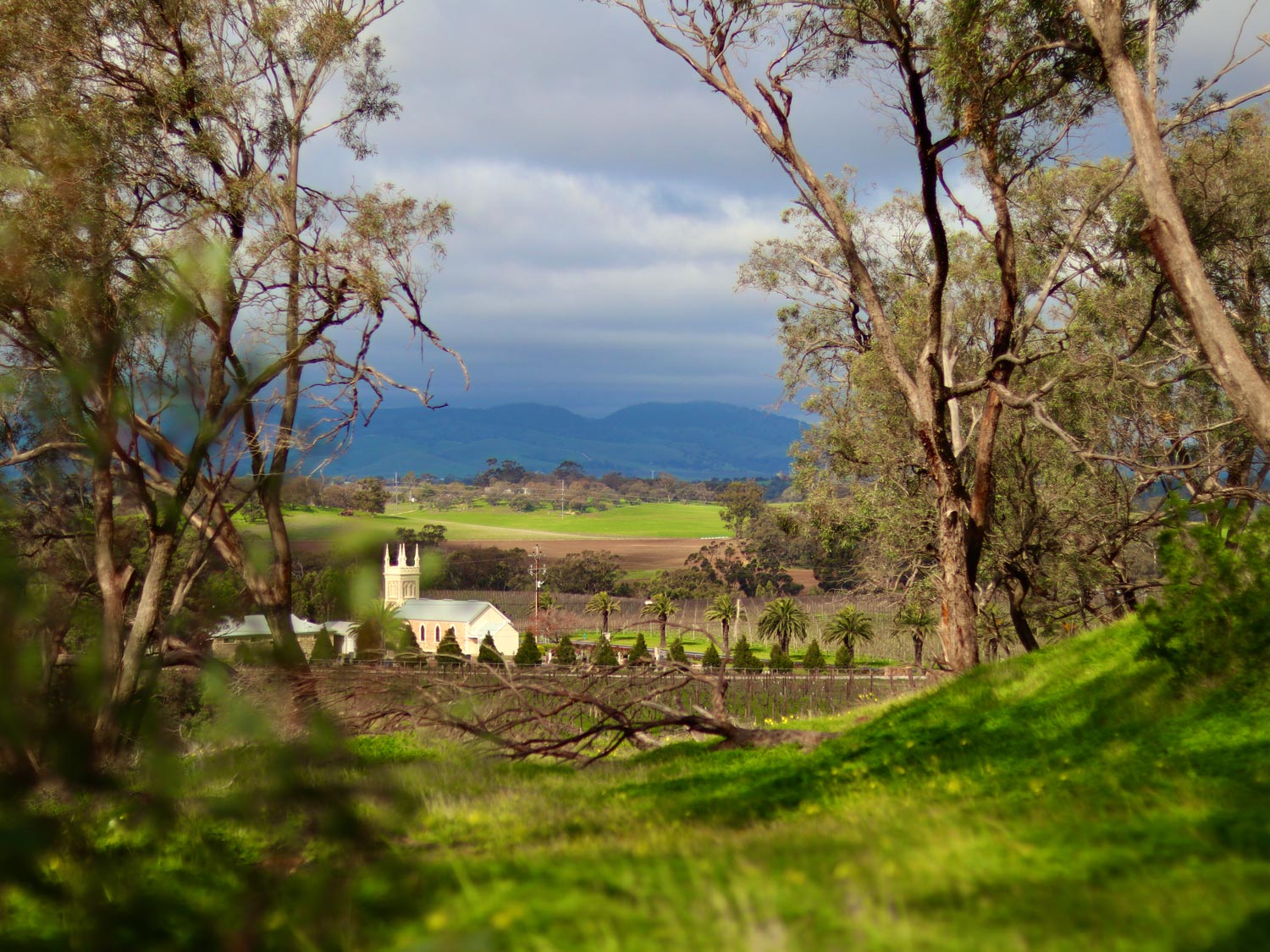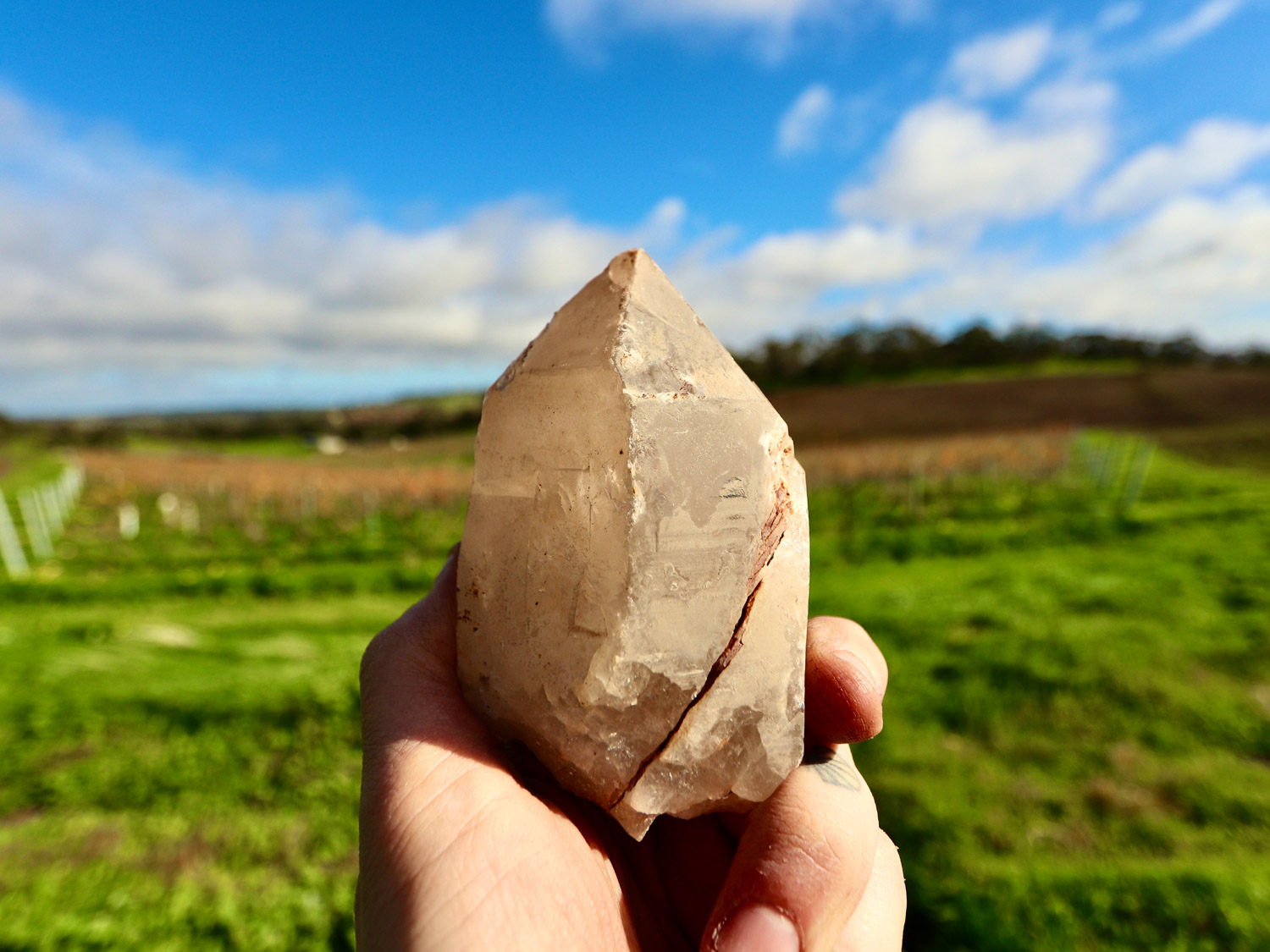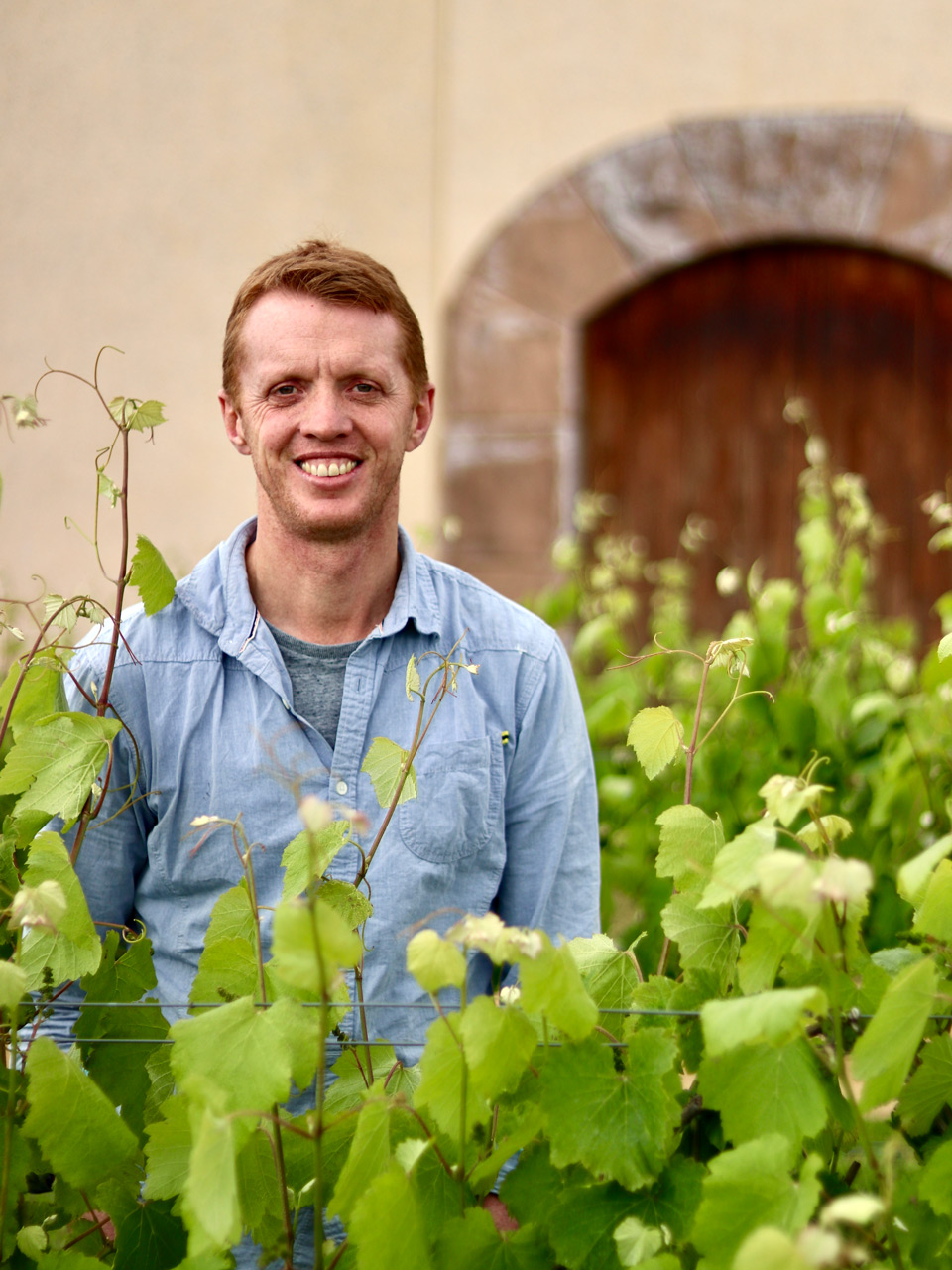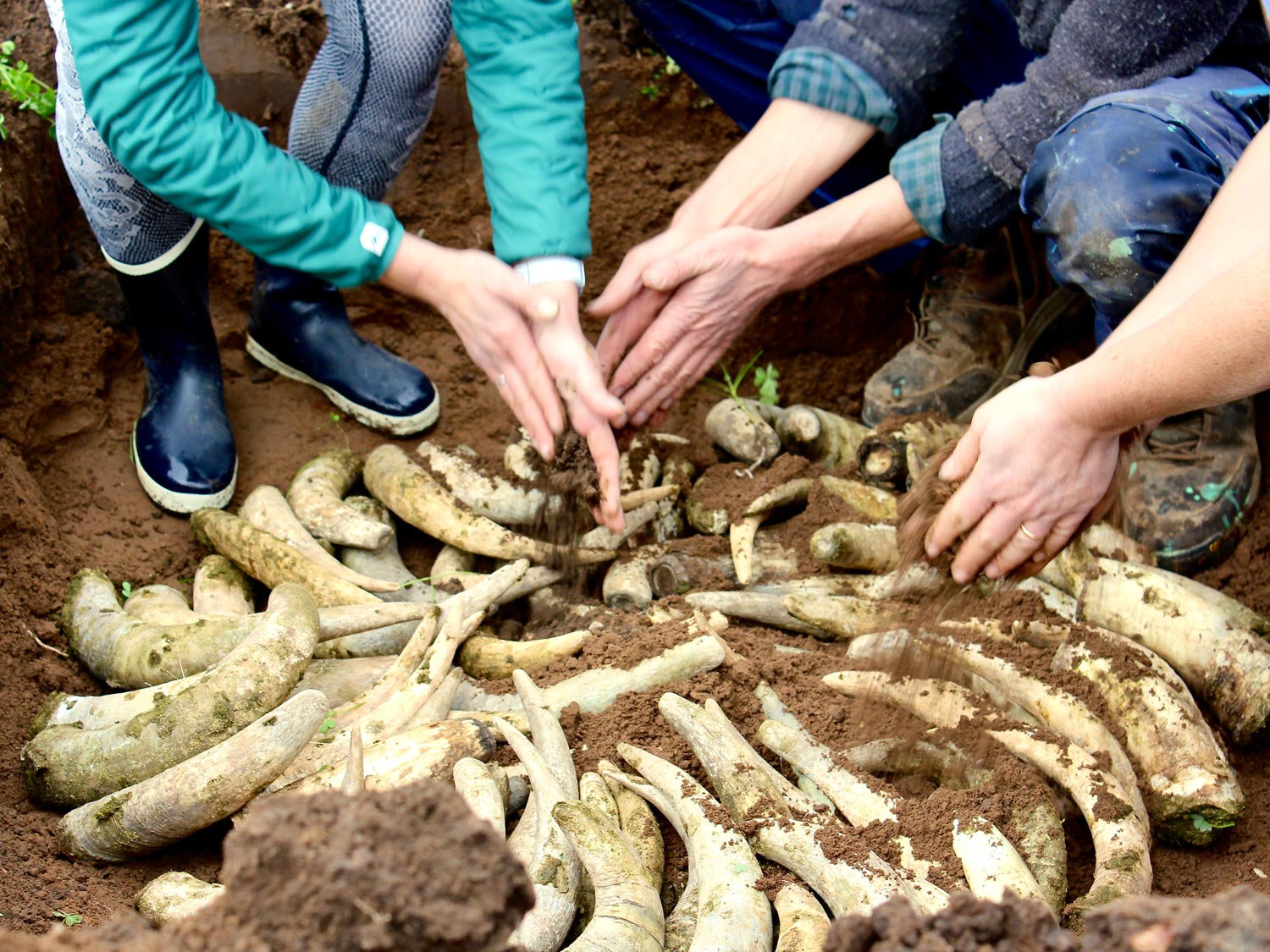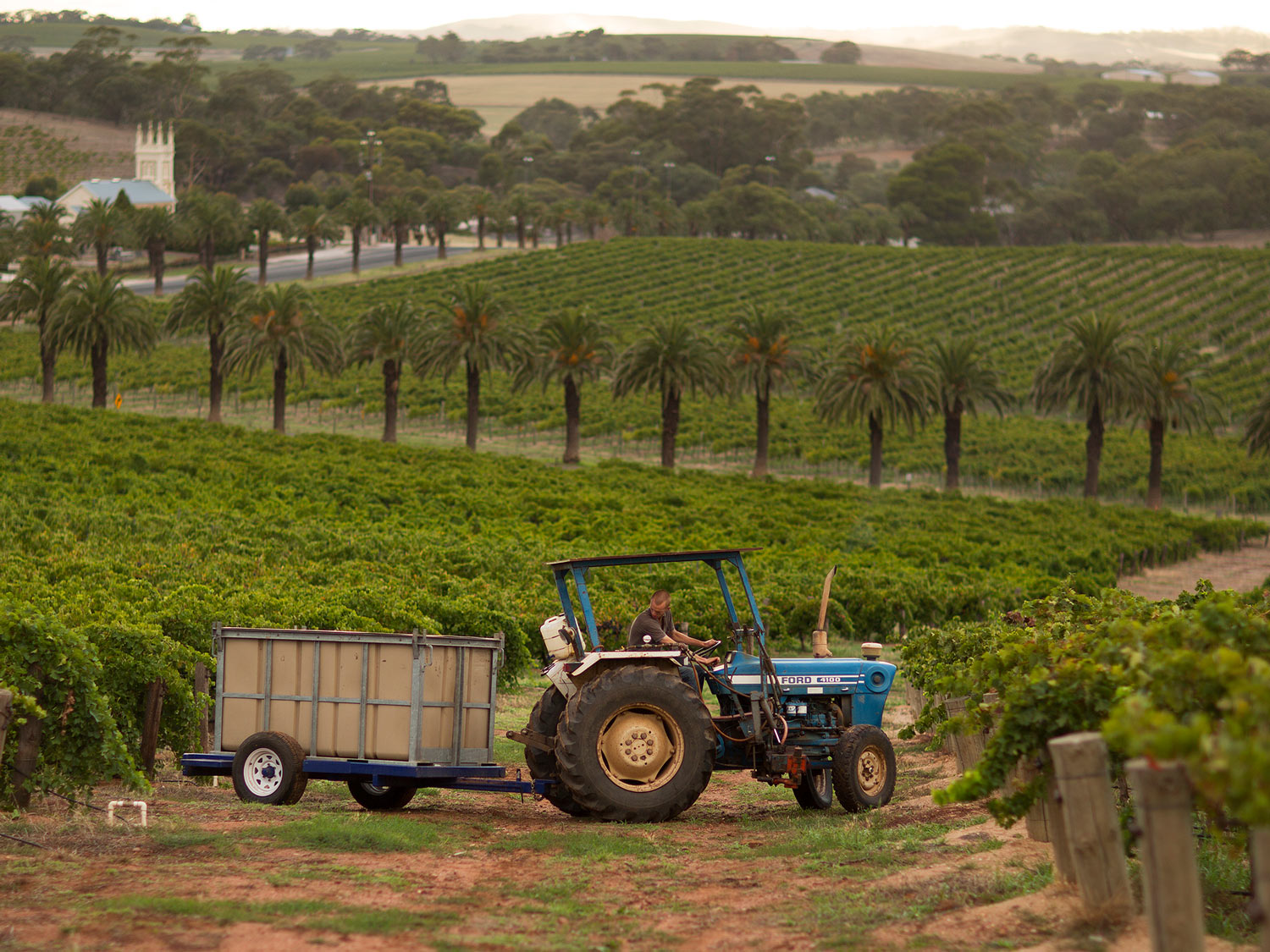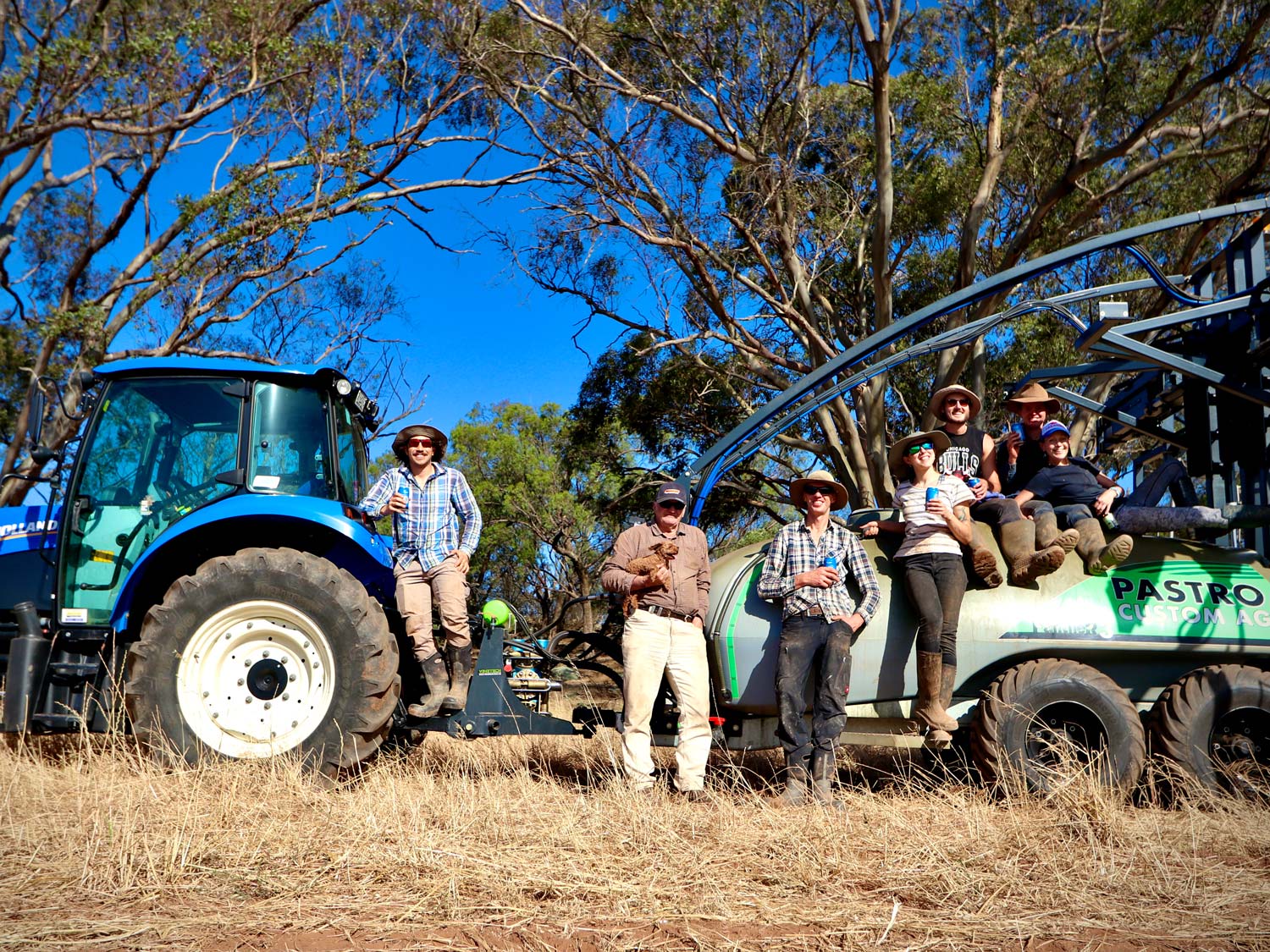Damien Tscharke takes sustainability and transparency very seriously, with his vineyards and winery being certified both organic and biodynamic – a rarity in the Barossa. Solar power meets the energy needs, and only rainwater and recycled wastewater is employed in the winery and for irrigation, while all compost and biodynamic preparations are made inhouse as they work towards a closed loop farming operation. The motivation for this approach is centred around larger environmental goals as much as it is around making better and more expressive wine. Tscharke’s Gnadenfrei North Vineyard is a young one, first planted in 2017, and it is dedicated to the classic red varieties of the region and a handful of white Rhône varieties. It’s a suite of grapes that through the genetic adaption of old Barossa vine material and carefully selected climate-apt emerging varieties, Tscharke believes will be making balanced expressive wines for generations to come. The site currently yields an ultra-premium grenache blanc, a single-vineyard shiraz and a grenache rosé.
“The oldest soils of the Barossa can be found in Marananga,” says Tscharke. “We sit on the western ridge of the Barossa Valley at 300 metres above sea level. We have greater diurnal variation than a lot of the low-lying vineyards on the valley floor, and our exposed rugged landscape tends to produce wines of unique character.”
Damien Tscharke was an early adopter of emerging varieties, but he is equally wedded to the Barossa classics that have proven themselves over the six generations his family has farmed in the valley. In his home Gnadenfrei site, he has supplemented a planting of 1950s vines in the southern section with his Gnadenfrei North Vineyard, which see the regional stalwarts of shiraz, mourvèdre and grenache joined by grenache blanc, piquepoul and roussanne. The Gnadenfrei North vineyard now occupies 12.69 hectares, with the vines planted between 2017 and 2022.
As with all the Tscharke sites, this vineyard is certified organic and biodynamic, and the winery is also a certified processor. “We are an owner operator, and we manage our vineyards as a place we want to live,” says Tscharke. “It should be healthy, free of chemicals and overflowing with life.”
That approach has resulted in many of the typical challenges of running a vineyard dissolving. “Since adopting a holistic approach to viticulture, all of the major pests and diseases that were seemingly becoming more and more challenging to control have almost disappeared or become less of an issue to manage as they once were,” he adds.
That balance in the vines is also something that he has seen increase in the fruit and the wine. “The benefit of an improved micro and mesoclimate through organic farming has significantly improved the retention of natural acidity,” says Tscharke. “It’s nice to make wines today without the need to be so heavily dependent of acidification.”
“Since adopting a holistic approach to viticulture, all of the major pests and diseases that were seemingly becoming more and more challenging to control have almost disappeared or become less of an issue to manage as they once were.”
Grape-growing is less about yield these days, and is far more centred on quality, Tscharke says. “It’s an opportunity to communicate about a place through the fruit. When there is more happening in the vineyard’s ecology, there are more interesting forces at play helping enrich the terroir. Our grape vines are fortunate to grow in a healthy environment, brimming with life, this has undoubtedly led to more naturally balanced fruit.”
The operation is built around achieving a closed farming system that maximises sequestration of carbon in the soil. That means a no-till philosophy and no grazing, with all compost and biodynamic preparations produced onsite. “A lot of land is planted to vineyards and for sixth months of the year it more or less sits in a dormant state when it could be utilised for carbon sequestration,” says Tscharke.
Non-vineyard land is in the process of being revegetated with native species. No treated timber is used onsite, with only locally made steel posts and wires employed. A solar array meets most of the energy needs, and underground cellars significantly reduce the need for refrigeration. All the Tscharke wines are cellared this way, unlike the common situation where both wine in barrel and bottle rest in an airconditioned winery shed. It’s a situation that he feels is wasteful given the thermal properties of the earth.
All the water used across the operation is supplied through captured rainwater and a bespoke water treatment system that processes up to 2.5 million litres of reclaimed winery wastewater and stormwater a year. This self-sufficiency has environmental motivations, but Tscharke also believes that using chlorinated and chemically treated mains water for winemaking and watering is far inferior to rainwater or naturally treated water, with it having “far greater vitality and energy”.
Tscharke’s interest in emerging varieties knits into his championing of established ones, with the key emphasis being on climate suitability. “Today, we only encourage wines and wine styles from grape varieties that naturally thrive in our landscape. As a region, we don’t shy away from fostering an evolution of tradition, but we continue to succeed in producing exceptional wines from traditional varieties that are all suited to an arid climate. Grenache, shiraz and mourvèdre aren’t about to vanish from the scene.”
Over 170 years of grape-growing has meant that the Barossa has vine material that is uniquely suited to the region. Over that time, genetic change and the subsequent “cultural selection of clones” that are best suited to the region has resulted in vine material that is genetically adapted. “There is a wealth of knowledge and experience that enables us to benefit from such a rich history of grape-growing,” says Tscharke. “We only grow varieties suited to arid conditions. The rest is about listening to the environment and applying a lot of wisdom when it comes to making the right farming.”
The operation has grown over the years, and the exhaustively manual work requires a dedicated team, with Tscharke itching to spend even more time amongst the vines. “It’s amazing what and see and the ideas you create by just being physically in touch with the environment,” he says. “Grape-growing has been occurring for 8,000 years or so, and it’s great to play a role in this significant evolution with so many massive challenges. There are so many exciting developments happening in the viticultural world. It’s a great time to be a grape-grower.”

